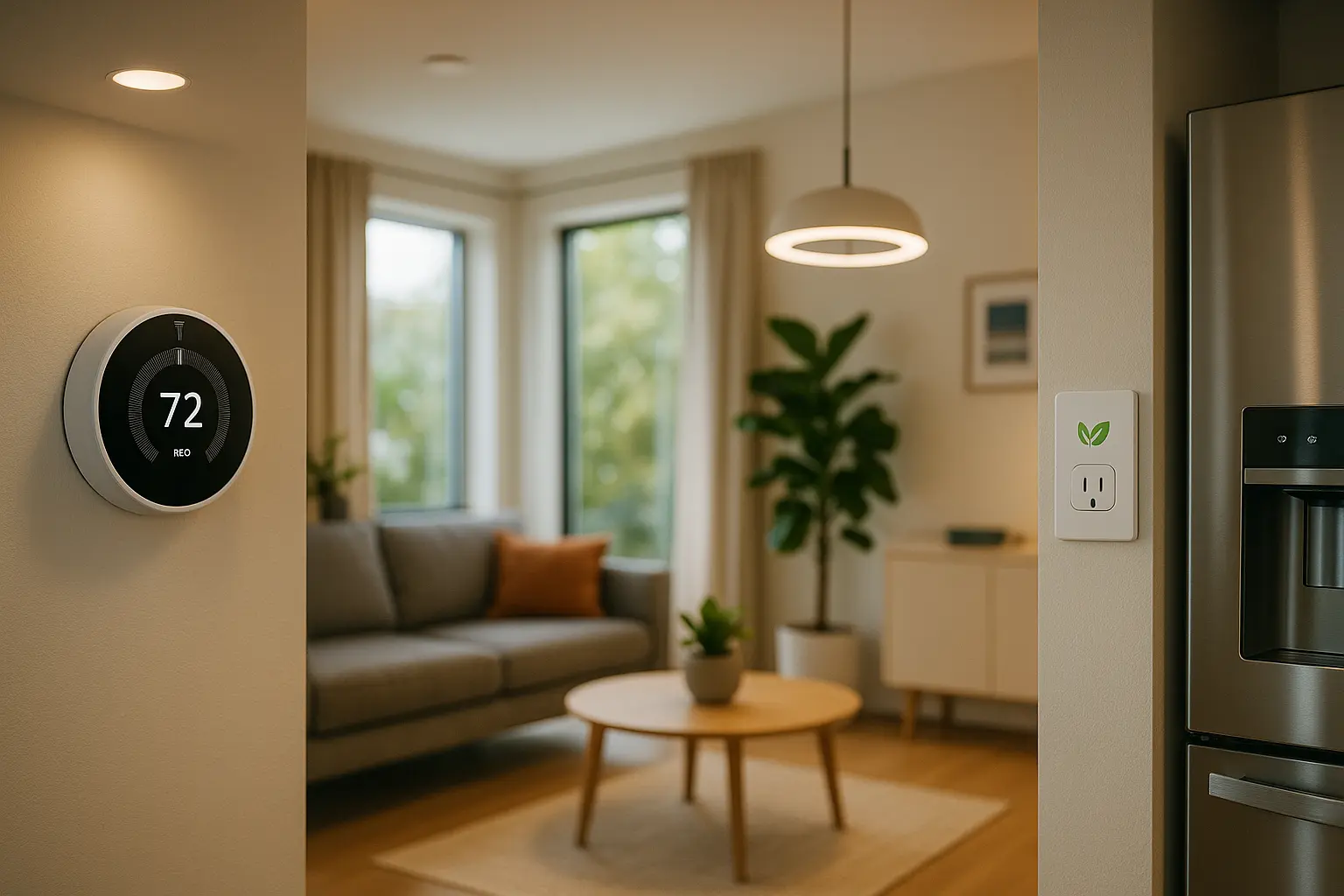In an era where energy consumption and efficiency are more crucial than ever, our homes can be surprisingly inefficient. Many of us are unaware of how much electricity we waste daily, often due to outdated systems or a lack of smart control. But what if we told you there’s a modern solution that can transform your humble abode into an efficient, tech-savvy sanctuary? Join us as we delve into the world of smart home technology and explore how these innovative systems can revolutionize your living environment, saving time, money, and the planet. Let’s embark on a journey to make our homes more efficient and sustainable.
The Evolution of Smart Energy Systems
As technology continues to evolve, so too do the possibilities for optimizing our homes. The traditional approach to energy consumption often leaves much to be desired, with systems running continuously or inefficiently. However, smart technology has ushered in a new era, providing us with advanced solutions for better management and control.
Harnessing Smart Devices
We have a plethora of devices at our disposal, each contributing to a more efficient lifestyle. From smart thermostats that learn our heating and cooling preferences to intelligent lighting systems that adjust based on our habits—these tools are designed to minimize energy waste and maximize comfort.
Intelligent Power Systems
Smart power systems are designed to track and analyze our electricity consumption. By providing real-time data and actionable insights, these systems enable us to make informed decisions about when to use energy, ultimately conserving power and reducing costs.
The Role of Automation
Automation has become a cornerstone of modern energy management. With the ability to program and schedule when devices should operate, we can ensure that energy is used only when needed. This reduces unnecessary consumption and extends the lifespan of our appliances.
As we embrace these technologies, the potential to create an ultra-efficient home becomes not just a possibility but a reality.
Revolutionizing Lighting and Power
Lighting has always been a significant energy consumer in our homes. Traditional incandescent bulbs are not only costly but also inefficient, converting a large portion of the power into heat rather than light. This is where smart lighting systems come into play, offering a revolutionary approach to home illumination.
Smart Lighting: More than Just a Bulb
Today’s smart lighting solutions are about more than simply turning lights on and off remotely. These systems allow for dynamic adjustment of brightness, color, and even mood settings, creating an environment that adapts to our needs and preferences.
Efficiency and Savings
By integrating sensors and automation, smart lighting ensures that lights are only in use when necessary. Motion detectors can switch off lights in unoccupied rooms, while daylight sensors adjust the lighting based on external light levels. This efficient use of energy not only reduces our consumption but also slashes our utility bills.
Power Management Systems
Smart power management systems offer an umbrella solution for energy control. We can monitor, manage, and optimize our electricity use, ensuring that each device operates at peak efficiency. These systems provide insights into how and when we’re using energy, empowering us to make smarter choices.
By adopting smart lighting and power management, we not only enhance our living experience but also contribute to a more sustainable future.
Streamlining Energy Consumption in Modern Homes
A modern home is not just a place to live; it’s a dynamic environment that evolves with our lifestyle and needs. As such, understanding and managing our energy consumption becomes essential to maintaining an efficient and comfortable living space.
Analyzing Energy Usage Patterns
Through the use of smart technology, we can gain a deep understanding of our energy habits. Smart meters and sensors collect data on our consumption, providing valuable insights into where we use the most electricity and where savings can be made.
Smart Appliances: The New Norm
From refrigerators to washing machines, smart appliances are designed to operate with efficiency in mind. They adapt their operation based on real-time data, reducing energy waste and prolonging their lifecycle.
The Impact of Real-Time Monitoring
With real-time monitoring, we are always informed about our power usage, allowing us to make immediate adjustments. Unexpected spikes in energy can be quickly identified and addressed, ensuring that we remain in control of our home’s energy efficiency.
By streamlining our energy consumption, we not only reduce our carbon footprint but also create a living space that is in harmony with our modern lifestyle.
Conclusion: Embracing the Future of Energy Efficiency
As we stand on the brink of a new era in home technology, the potential for transforming our living spaces is immense. The integration of smart home systems is not just about convenience; it’s about taking responsibility for our energy usage and its impact on the planet.
The Path Forward
While the transition to a fully smart home may seem daunting, it represents a significant step towards creating efficient, sustainable environments. By embracing these advancements, we are not only optimizing our energy consumption but also setting a precedent for future generations.
A Collective Effort
Ultimately, creating an efficient home is a collective effort, involving both technological innovation and a shift in our behaviors. As we continue to adapt and evolve, let us remember the power we hold to make informed choices that benefit both our households and the world at large.
In this modern age, where every choice counts, let’s commit to harnessing the full potential of smart technology to make our homes—and our planet—better places to live.
FAQ
How does smart home technology contribute to energy efficiency?
Smart home devices help monitor and control energy usage more effectively. Automated thermostats, for example, can adjust temperatures based on your schedule, while smart lighting can turn off automatically when no one is in a room, reducing unnecessary energy consumption.
What are the primary smart home devices that can enhance energy efficiency?
Key devices include smart thermostats, energy-efficient smart bulbs, smart plugs, and intelligent appliances. Each of these tools can be managed remotely and programmed to operate only when necessary, minimizing energy waste.
Can smart home technology lead to significant savings on energy bills?
Yes, by optimizing energy use, smart home technology can lead to noticeable reductions in monthly energy costs. For instance, smart thermostats can cut heating and cooling costs by learning your preferences and adjusting settings accordingly.
Is it difficult to integrate smart devices into an existing home setup?
Most smart home devices are designed to be user-friendly and can be easily integrated into existing systems. Many products come with straightforward installation guides, and some might only require plug-and-play or app-based configurations.
How can smart home technology help in reducing environmental impact?
By lowering energy consumption, smart home technology reduces greenhouse gas emissions associated with power generation. This not only conserves resources but also contributes to a healthier planet by minimizing the carbon footprint.



